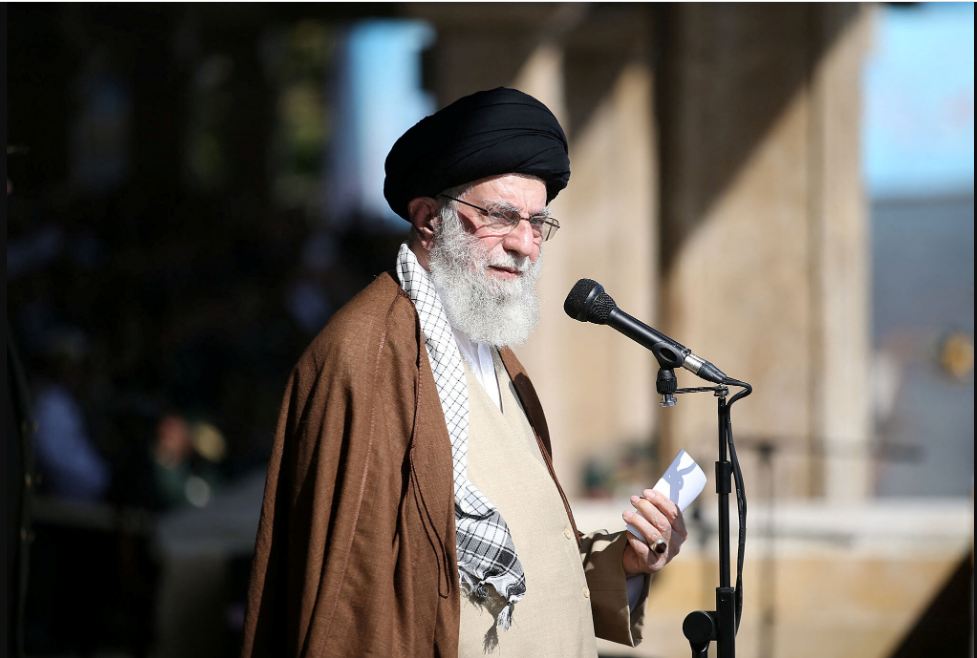Iran’s Reckoning: Why the Fallout from U.S. Strikes Will Echo Beyond Tehran
Tehran — The Middle East is once again at a crossroads — but this time, the reckoning has arrived at Iran’s doorstep. Following targeted U.S. airstrikes on Iran’s nuclear facilities, including Fordow, Natanz, and Isfahan, experts believe the era of Tehran’s unchecked strategic adventurism may finally be coming to an end.
While the direct impact of the strikes is still being assessed, the symbolic and strategic consequences are undeniable. For decades, the Islamic Republic has combined nuclear brinkmanship with proxy warfare to project power across the region. But now, both pillars of that strategy appear to be crumbling — with ripple effects that could reverberate far beyond the Gulf.
“Iran’s Islamic regime, which has terrorised the region and its own citizens for decades, is finally facing a reckoning,” said Rajesh Rajagopalan, Professor of International Politics at Jawaharlal Nehru University, New Delhi.
Strategic Infrastructure Crippled
According to U.S. military sources and independent analysts, the United States deployed GBU-57 Massive Ordnance Penetrator (MOP) bombs — known as “bunker busters” — on Iran’s highly fortified Fordow nuclear facility, which is buried deep beneath a mountain.
These strikes, combined with earlier Israeli operations, have severely degraded Iran’s nuclear program. While critics long feared that military action might accelerate Tehran’s pursuit of a nuclear bomb, current assessments suggest the opposite: Iran’s nuclear infrastructure has been set back by years.
“The program is now incapable of delivering a weapon at this point,” said Rajagopalan, countering common fears about retaliation. “What we are seeing is not escalation — but a surgical neutralization of Tehran’s strategic leverage.”
Proxy Network in Decline
Iran’s regional influence has also been significantly eroded. Hezbollah and Hamas, once potent instruments of Iranian strategy, have suffered severe losses. Israeli operations have eliminated key leaders and crippled their capabilities through both overt strikes and covert campaigns. The Houthis, while still active, are a diminished force. Meanwhile, in Syria, President Bashar al-Assad — Tehran’s closest ally — has fled to Moscow amid mounting internal and external pressure.
Iran’s axis of influence — stretching from the Levant to the Gulf — is no longer as formidable as it once appeared.
“Terrorist strategies can only go so far,” Rajagopalan noted. “Over time, opponents adapt. Israel, in particular, has learned how to escalate and deter — often with surgical precision.”
A Fight Iran Picked — and Is Losing
Despite being beset by domestic unrest, a failing economy, and international sanctions, Iran chose to provoke confrontation with both Israel and the United States. Through its regional militias, cyber warfare, and missile attacks, Tehran has created a pattern of provocation, seeking to intimidate through volatility.
But that strategy is faltering.
“Iran has been an expansionist power in the region,” said Rajagopalan, “creating instability from Lebanon to Yemen without any legitimate security need. Neither Israel nor the U.S. posed a threat to Iran. It picked this fight — and now it is paying the price.”
A Moment for Reflection in Tehran
The question now is whether Iran’s leadership will absorb the message and recalibrate its posture.
After the U.S. eliminated Quds Force commander Qassem Soleimani in 2020, Tehran exhibited momentary restraint. But that lesson was short-lived. With its nuclear bluff now called and its proxy tools weakened, Iran stands at a critical juncture.
“Prudence would dictate that Tehran reassess its choices,” said Rajagopalan. “If it doesn’t, the consequences could be even more severe — potentially leading to regime change.”
That possibility, while not openly pursued by Washington, remains on the table should Iran choose further confrontation. However, regime change comes with massive humanitarian and geopolitical risks — not only for Iran but for the broader region.
“The downfall of the Islamic Republic may be welcomed by many,” said one Gulf-based analyst, “but it will not come without a heavy price, especially for ordinary Iranians who have already endured decades of suffering.”
Repercussions Beyond West Asia
The impact of the U.S. strikes will not be confined to Tehran. Domestically, the attack may shake American politics, particularly the coalition that supports former President Donald Trump. Though MAGA-aligned factions have been historically hawkish, divisions have emerged over Israel and America’s entanglements in the Middle East.
“There is already infighting within Trump’s base over support for Israel and military intervention,” Rajagopalan noted. “This strike could splinter that base further.”
On the international stage, the consequences are mixed — and in some cases, beneficial. For Ukraine, the U.S. action is symbolic justice. Iran has supplied drones to Russia, many of which have targeted Ukrainian civilians. While Iran may continue these exports — and Russia has begun manufacturing its own drones — Kyiv will likely welcome any blow to one of Moscow’s key allies.
A Warning to China?
There may be another global player watching U.S. moves with keen interest: China.
Trump’s unpredictability is well-known. He recently stated that not even he knows what he will do in a given situation — a trait that unnerves both allies and adversaries. For Beijing, this raises new questions about its Taiwan calculus.
“China is not Iran. It has real military capacity,” Rajagopalan acknowledged. “But even powerful nations must pause when their assumptions about U.S. deterrence are shaken.”
In this sense, Trump’s actions in the Gulf may serve as an implicit message to China: underestimating U.S. resolve could prove costly.
The Global Danger of Imprudence
The broader takeaway from the Iran conflict is the danger of imprudence — acting rashly without weighing consequences. While American foreign policy is often criticized for overreach, similar scrutiny is rarely applied to authoritarian states like Iran, or even to global giants like China.
“Iran is a textbook case of how over-expansion and ideological adventurism can backfire,” Rajagopalan said. “The regime’s own recklessness may now bring about its undoing.”
He added that if China were to miscalculate and invade Taiwan, it would be another example of how great powers — blinded by ambition — often fall prey to the same traps they accuse the West of setting.
A Cautionary Endgame
With its nuclear ambitions curbed, its proxies crippled, and its economy faltering, Iran is now confronting a strategic inflection point. The regime can either retreat from confrontation or risk escalation that may end in its collapse.
“Further imprudence,” said Rajagopalan, “will lead to Tehran’s end — not just the regime, but the fragile state that holds Iran together.”
And while many would celebrate the fall of the Islamic Republic, the region — and the world — must be prepared for the aftermath.



